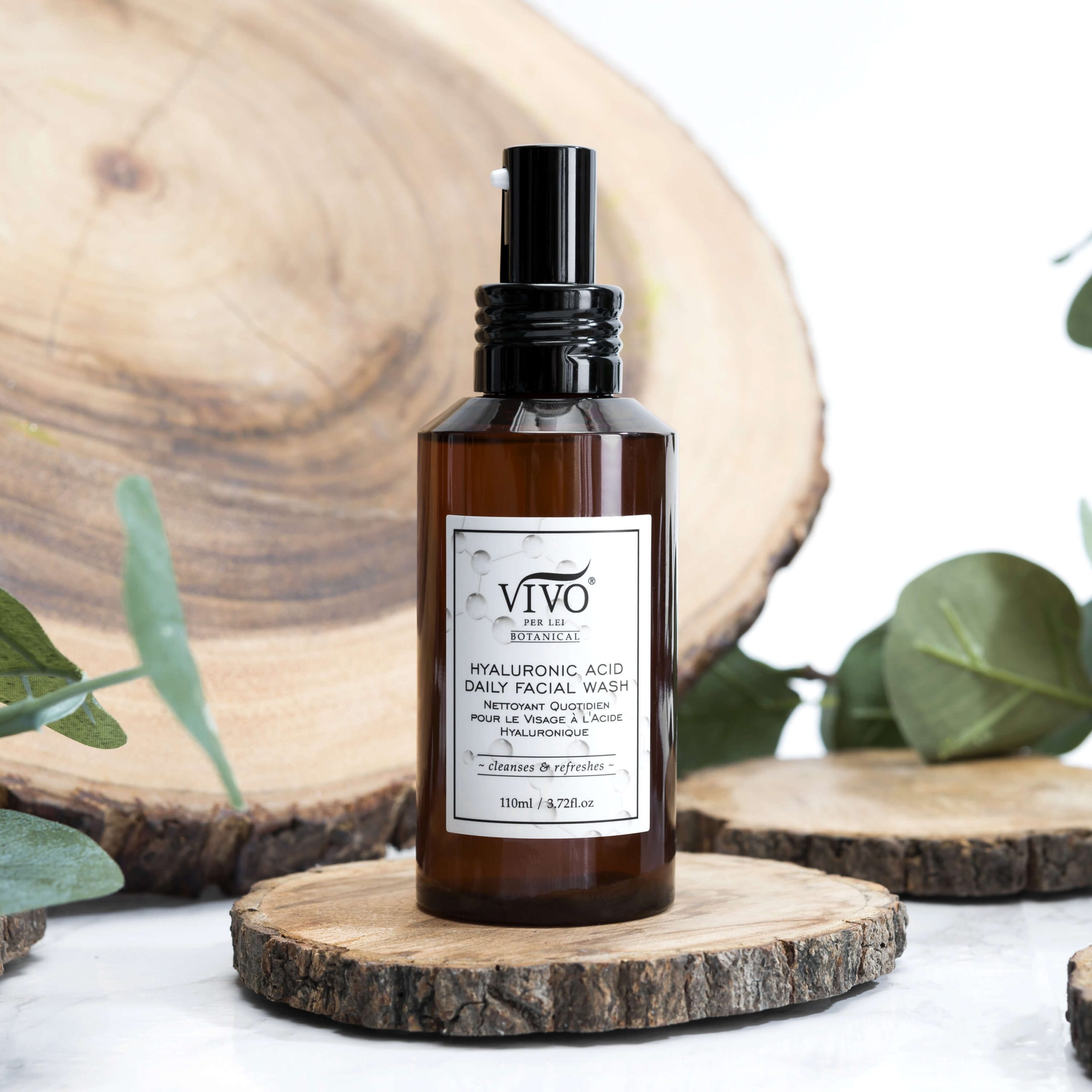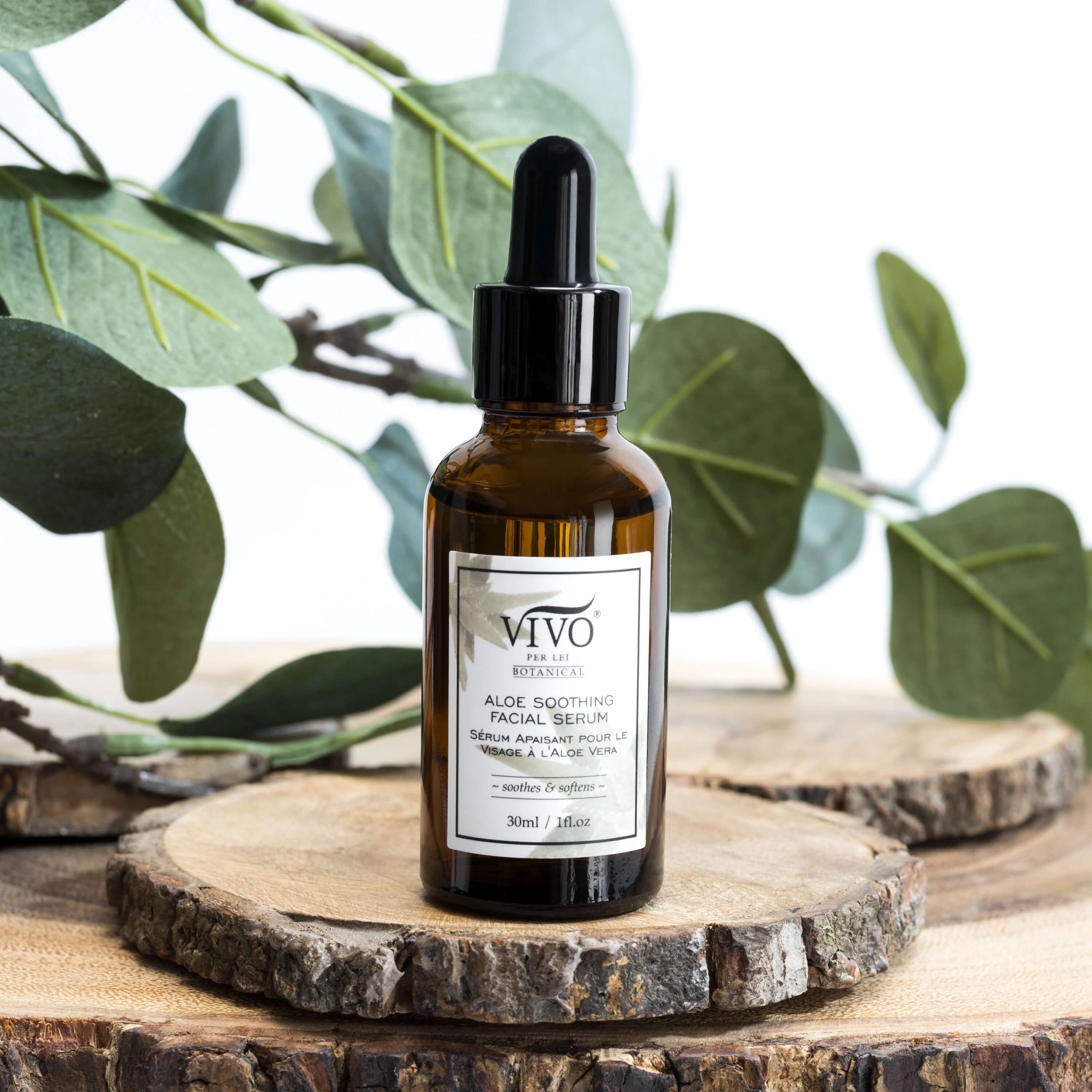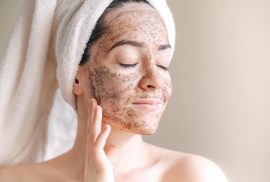Your Skin Barrier is Crying for Help – Here’s How to Fix It

‘Skin barrier’ has become a bit of a buzzword lately, finding itself at the center of the latest trends and the focus of new skincare products. Why? Because this important barrier, which sits on the outermost layer of your skin, is an integral part of maintaining a healthy complexion. Not only does your skin barrier keep your skin safe from environmental irritants and aggressors, but it also locks moisture into the skin, preventing it from evaporating away so that your skin remains hydrated.
While there’s no arguing with how vital it is to keep your skin barrier feeling healthy, this is something that many people struggle with. There is so much out there that can damage your skin barrier without you realizing it, at least until that barrier gets to the point of desperately crying out for help.
How do you know if your skin barrier is damaged and what can you do to fix it? Keep reading as Vivo Per Lei explains.
How Can You Tell If Your Skin Barrier Is Damaged?
A damaged skin barrier can manifest in a wide range of ways. This can sometimes make it difficult to determine whether the skin problems you’re dealing with are due to a damaged barrier or something else completely. However, if you’re experiencing any of these symptoms, there’s a good chance that your skin barrier has been compromised in some way:
- Dryness and dehydration. This is down to how a damaged skin barrier won’t be able to effectively retain moisture.
- Sensitivities. If your skin stings or feels uncomfortable when you apply skincare products, even if you’ve used those products in the past without a problem, this is a sign that your skin barrier is struggling. You’ll likely also experience sensitivities to environmental irritants since your skin barrier won’t be able to block them out properly.
- Increased oiliness and breakouts. Not only can these occur when the pH of your skin barrier falls out of line, but dehydration, as mentioned above, can also trigger an increase in sebum production. This leaves the skin oilier, as well as more susceptible to clogged pores and breakouts.
- Fine lines and wrinkles. Although these can be primarily attributed to the skin aging process, a damaged skin barrier accelerates things, making creases more noticeable.
If you’re experiencing any of the above, you’re probably wondering how your skin barrier became damaged in the first place. Again, there could be several reasons for this, such as:
- Spending time in an environment that’s too dry or too humid.
- Over-cleansing or over-exfoliating your skin.
- Using topical ingredients/products that are too harsh for your skin.
- Sun exposure.
- Pollution.
- Certain lifestyle factors, such as stress or a poor diet.
- A genetic predisposition to a weaker skin barrier.
What’s the Next Step?
If you suspect that your skin barrier is damaged and in need of some TLC, here are the best ways to go about giving it just that, so that you can restore the feeling of strength and resilience to this precious layer of skin:
Switch to a Gentler Cleanser

As we mentioned above, over-cleansing is a common cause of skin barrier damage. Although cleansing is an essential part of skincare, doing this too often or using a cleanser that’s too aggressive for your skin will mean that it’s not just dirt and impurities you’re cleansing away – you’ll also be stripping away more and more of your skin barrier with each cleanse.
To prevent this, switch to a gentler cleanser. Find one that doesn’t contain any harsh cleansing agents, like sulfates. Instead, you need a formula that will provide moisture and nutrients while gently lifting impurities from your skin, just like the Vivo Per Lei Hyaluronic Acid Daily Facial Wash. With amino acids, sodium hyaluronate, vitamins, red algae, and hemp seed oil, it will leave your skin feeling more supple and elastic after every use.
Cut Back on Exfoliation
While over-cleansing is notorious for harming the skin barrier, over-exfoliating has the same reputation. In fact, with exfoliators working on a deeper level than cleansers, over-exfoliating can actually be even more dangerous.
Once your skin barrier starts to show signs of struggling, cut back on exfoliation immediately. You may even need to stop exfoliating for a while so that your skin barrier has some time to recuperate. Once your skin starts to feel healthier again, you can then begin to gradually reintroduce exfoliation back into your routine. However, just like when choosing a cleanser, make sure that you only opt for gentle exfoliating products.
Rebuild With Moisture

Moisture forms a key part of the skin barrier, significantly contributing to barrier function. Unfortunately, once your skin barrier starts to take a beating, moisture loss increases. Not only does this leave your skin parched but it also interferes with how your skin barrier functions.
To turn things around, try to give your skin as much moisture as possible. There are plenty of ingredients that can provide this, with humectants being among the best. These are ingredients that draw and bind moisture to the skin, making them a game-changer when you want to saturate your skin with moisture ASAP. A product that contains multiple humectants, like the Aloe Soothing Facial Serum from Vivo Per Lei, will provide the best results. The fact that this formula also soothes the feeling of inflammation is even more of a bonus for an irritated skin barrier.
Take a Break From Potent Actives
We’ve already talked about how you should take a break from exfoliation when you’re trying to heal your skin barrier. However, potent active ingredients can also be too much for a damaged barrier, making it a good idea to put these to the side for a while as well.
How do you know if an ingredient should or shouldn’t be used? Try to identify its main purpose. If it works by stimulating the skin in any way, as opposed to soothing, calming, and supporting the complexion, then give it a rest for a while.
When can you start using your actives again? Once your skin barrier has fully recovered. However, take it slowly and be mindful when adding them back into your routine as those same actives could potentially have contributed to your barrier damage in the first place.
Simplify Your Skincare Routine
While gentle skincare products are great for your skin barrier, you’re probably familiar with the phrase ‘too much of a good thing’. This holds true when it comes to your skincare routine, especially if you want to nurture your skin barrier. Overloading it with a long line of products twice a day and subjecting it to hundreds of different ingredients will only exacerbate the damage you’re dealing with.
Instead, streamline your skincare routine to create a short and simple version. Remember that there are only three products that you really need: a cleanser, a moisturizer, and a sunscreen. Anything else is considered an extra. Try to keep those extras to a minimum for now so that your skin barrier can fully recover.
Protect Your Skin Barrier From Sun Damage
UV rays spell bad news for your skin barrier, with studies proving that they significantly impair barrier function. They cause inflammation in the skin too, which chips away at your skin barrier’s defenses over time.
One of the best things that you can do when trying to fix a damaged skin barrier is to keep your skin safe from the sun. Go the extra mile when it comes to sun protection, even if this means changing your summer weekend plans or spending sunny afternoons in the shade. Keeping your skin covered with SPF at all times is essential too. Don’t be caught out by thinking that you don’t need to worry about UV rays in the winter – they’re still around and will still wreak havoc on your skin barrier.
Consider Your Lifestyle Habits
While your skincare choices are a big part of fixing your damaged skin barrier, your lifestyle habits matter too. The healthier your lifestyle, the healthier your skin barrier will be, with a direct correlation between the two.
Your diet, for example, feeds your skin from within. Eat plenty of whole foods and healthy fats, and you’ll be giving your skin the tools that it needs to restore barrier strength and vitality. Studies have found that consuming oils that are rich in omega-3 fatty acids has a particularly notable effect on skin barrier function.
Stress is another big aspect of your lifestyle that could be harming your skin barrier. Again, plenty of research has been done on the topic, confirming that stress hormones weaken and degrade that barrier. Stress affects your skin in other negative ways too, making it well worth spending some time figuring out how you can bring your stress levels down whenever they start to rise.
Be Patient
Last but not least, be patient. It can take a while for the skin barrier to thoroughly heal. If your damage is minimal, you should start to see a significant difference in your skin after just a couple of weeks. However, if your barrier is severely compromised, it could take a few months before things start to improve.
The last thing that your skin barrier needs is for you to panic and overload it with even more skincare products in an attempt to fix it as quickly as possible. All of that stress will also only cause further damage, meaning that you’ll end up waiting even longer for your skin barrier to strengthen. Instead, be consistent with the care that you provide and give your barrier the time that it needs to recover, no matter how long this may be.
Summary
The fact that skin barrier damage could lead to everything from extreme dryness and flaking to excessive oiliness and breakouts means that people often don’t realize that a compromised barrier is the root cause of their skin concerns. Instead, they try to treat the issues in other ways, which only causes the skin barrier to continue weakening.
When anything goes wrong with your skin, your skin barrier should always be the first point of call. Make sure that your skin barrier is always feeling healthy and happy, and your complexion should respond in the same way.
Click here to bolster your skin barrier with more bestsellers from Vivo Per Lei.





